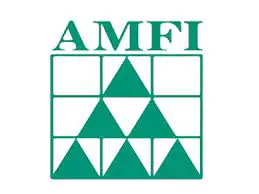Fixed income refers to any type of investment under which the borrower or issuer is obligated to make payments of a fixed amount on a fixed schedule. This includes income from fixed-income investments such as bonds, preferred stocks, or pensions that guarantee a fixed income. Fixed income can also refer to a person’s income that does not vary materially over time.
Corporate Fixed Deposits (FDs): Corporate Fixed Deposits are fixed deposits offered by corporate companies, functioning similarly to regular bank FDs but offering a higher rate of interest. These higher returns come with higher risks. The tenure for a corporate fixed deposit ranges from 1 to 10 years.
Company Fixed Deposit: A Company Fixed Deposit is the amount deposited by investors for a fixed period with a company, which offers a fixed rate of return. These deposits are accepted by manufacturing companies, financial institutions, and non-banking finance companies and are governed by the Companies Act 58A.
- Benefits of Company Fixed Deposits:
- Higher interest rate: Typically 2-4% higher than bank FD rates.
- Regular income: Investors can choose to receive interest at monthly, quarterly, half-yearly, or yearly intervals.
- Lock-in period: Most schemes have a minimum lock-in period of six months, after which investors can withdraw their money.
- TDS: Not applicable if the interest earned is equal to or less than ₹5,000 per year from a single company.
- Important Considerations:
- Read the application form carefully.
- Check the company’s rating before investing.
- Conduct a background check of the company.
- Companies may change interest rates on fixed deposit schemes without prior notice.
Non-Convertible Debentures (NCDs) / Bonds: When a company needs to raise money from the public, it issues a debt paper for a specified tenure, paying fixed interest on the investment. This paper is known as a debenture. Non-Convertible Debentures (NCDs) do not offer the option of conversion into shares, and on maturity, the principal amount along with accumulated interest is paid to the holder.
A bond is a fixed-income investment where an investor loans money to an entity (corporate or government) for a defined period at a variable or fixed interest rate. Bonds are used by companies, municipalities, states, and sovereign governments to raise money. Bondholders are debt holders or creditors.
- Advantages of NCDs:
- Tax Benefits: Listed NCDs held for over a year are considered long-term capital assets, taxed at 10.30%, unlike debt mutual funds which require a three-year holding period for similar treatment.
- Higher Returns: NCDs often offer higher returns compared to debt mutual funds and bank fixed deposits, especially for investors in the highest tax bracket (30%).
RBI Tax-Free Bonds:
RBI - 8% Savings (Taxable) Bonds, 2018:
- Eligibility for Investment:
- Individuals (excluding NRIs):
- In their individual capacity.
- Jointly or on a survivor basis.
- On behalf of a minor as a guardian.
- Hindu Undivided Families (HUFs).
- Investment Limit: No maximum limit for investment in the bonds.
- Tax Treatment:
- Interest on the bonds is taxable under the Income Tax Act, 1961.
- Bonds are exempt from wealth tax under the Wealth Tax Act, 1957.
- Transferability: Bonds held to the credit of Bonds Ledger Account are non-transferable.
- Interest:
- Bonds can be issued in cumulative or non-cumulative forms at the option of the investor.
- Non-cumulative bonds pay interest half-yearly, while cumulative bonds compound interest semi-annually, payable on maturity.
- Tax Deduction at Source (TDS): TDS applies to interest payments unless the investor provides a tax exemption certificate.
- Repayment: Bonds are repayable after 7 years from the date of issue.Premature encashment is allowed for investors aged 60 and above, subject to specific lock-in periods:
- Lock-in period for investors aged 60-70 years is 6 years.
- Lock-in period for investors aged 70-80 years is 5 years.
- Lock-in period for investors aged 80 years and above is 4 years.
Tax-Free Bonds
- What are Tax-Free Bonds?
Securities issued by companies, financial institutions, or the government, offering regular or fixed interest payments over a specified period.
Interest earned from these bonds is exempt from income tax under the Income Tax Act, 1961.
- Who Issues Tax-Free Bonds?
Government-backed entities and public undertakings such as IRFC, PFC, NHAI, HUDCO, REC, NTPC, NHPC, and IREDA.
- Features:
- Tenure: Investment periods of up to 10, 15, or 20 years.
- Liquidity: Bonds can be sold before maturity in the secondary market.
- Safety: Government backing ensures regular interest payments.
- Tax Benefits: Interest income is tax-exempt.
- Holding: Bonds can be held in physical form or a Demat account.
- Eligibility for Investment:
- Retail Individual Investors (RIIs), including members of HUFs and NRIs.
- High Net-worth Individuals (HNIs) with low-risk appetite.
- Qualified Institutional Buyers (QIBs).
- Corporates, trusts, co-operative banks, and regional rural banks.
- Investment Process:
- Available in both physical and Demat forms.
- Can be purchased during public issues or through the secondary market using a trading account.
- Why Invest in Tax-Free Bonds?
- Tax-free income.
- Low-risk investment.
- Easy liquidity.
- Optional Demat holding.
- Rated by various agencies for investor confidence.
Note: Currently, no tax-free bond issues are available in the primary market. Interested investors can invest through the secondary market.



